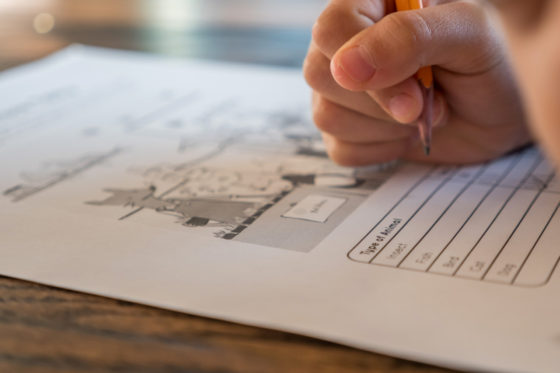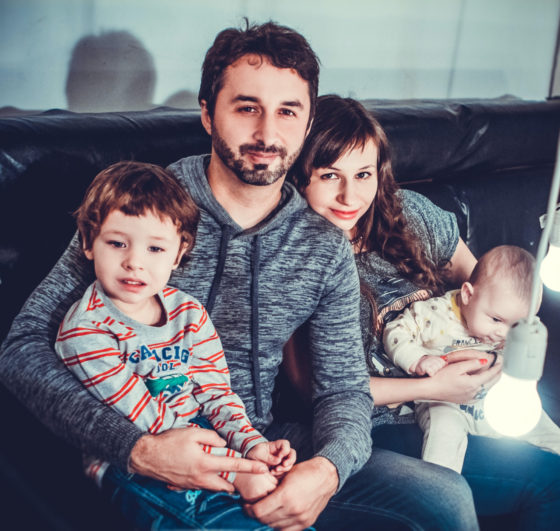Child CBT
Therapy
Helping children become aware of the ways in which thoughts can influence emotions and behavior is one of the most valuable services we can offer.
Cognitive-behavioral therapy (CBT) can help children to reframe how they identify, interpret and evaluate their emotional and behavioral reactions to negative experiences.
Psychotherapy for Children & Teens


The Cognitive Behavioral Therapy Center of New Orleans offers several different treatment approaches, all within the behavioral and cognitive therapies. These include the gold standard treatments in child and adolescent psychotherapy.
Treatment begins with an initial interview with parents and children. One goal of this session is to gather information pertaining to relevant history and current problems. Another aim is to get a sense of what the family hopes to accomplish and formalize treatment goals. Next, a treatment plan is collaboratively developed. This plan involves who will be attending sessions (parents and/or children), pertinent on-going collaborations (teachers, pediatricians), and referrals to additional services or testing.
These include:
-
Psychotherapy for Children & Teens
-
CBT for Children and Adolescents
-
Child Assessment & Evaluation
-
Parent Training
-
Psychotherapy for Children Under Age 6
-
School Consultation


Child Assessment & Evaluation
Sometimes, a family’s need is met through psychological testing of a child, either to guide academic pursuits or inform treatment. In this case, our experienced staff and comfortable setting gives parents peace of mind that their child will be assessed fairly and accurately and that results will be communicated in a professional, compassionate, easy-to-understand way. Our team works closely with local schools to provide testing that meets admissions requirements and to make recommendations to support a child’s ongoing success. We also work with pediatricians to provide expert developmental evaluation services and treatment planning if needed. Details are available on our Assessment and Developmental Delays pages.


Psychotherapy for Children Under Age 6
Infant and early childhood mental health (IECMH) refers to the promotion of social and emotional development in infants and young children ages birth to 5 years. IECMH focuses on the importance of the first social relationship: the infant-caregiver relationship. Research has found that infants develop in their relationships with their caregivers and consistent, sensitive attention, and interactions help build the infant’s brain architecture and promote healthy development. IECMH approaches, such as Child-Parent Psychotherapy (CPP), Parent-Child Interaction Therapy (PCIT), Attachment and Biobehavioral Catch-up (ABC) support the child within the context of their relationship with their caregivers. These interventions also help develop capacity in the child for expressing emotions, forming close and secure relationships, and mastering their environment. Typically, children are seen with their primary caregivers.
Interventions
CPP is a treatment for trauma-exposed children that examines how the trauma and the caregivers’ relational history affect the caregiver-child relationship and the child’s developmental trajectory. A major goal of CPP is to support and strengthen the caregiver-child relationship as a vehicle for restoring and protecting the child’s mental health. Over the course of treatment, the caregiver and child create a joint narrative of the traumatic event and identify and address trauma triggers that generate dysregulated behaviors and affect. ABC targets issues among children who have experienced early maltreatment and/or disruptions in care. These children often behave in ways that push caregivers away. The goals of ABC are:
- Increase caregiver nurturance, sensitivity, and delight
- Decrease caregiver frightening behaviors
- Increase child attachment security and decrease disorganized attachment
- Increase child behavioral and biological regulation
PCIT is a behavioral intervention for children and their caregivers that focuses on decreasing child behavior problems, increasing social skills and cooperation, and improving the parent-child attachment relationship. PCIT teaches parents traditional play-therapy skills to use as social reinforcers of positive child behavior and traditional behavior management skills to decrease negative child behavior.


CBT for Children and Adolescents
Although originally developed for the treatment of adults, this well-established psychotherapy has proven effective and appropriate with children and adolescents. Treatment protocols utilizing CBT for young people have been shown to successfully treat numerous issues including separation anxiety, social anxiety, depression, panic attacks, behavior problems, and difficulty adjusting to changes in family structure. Within these treatments, CBT holds to a few basic assumptions:
- Instead of focusing on the past, CBT focuses on solutions in the here-and-now: Helping the child change thoughts, feelings, and behaviors that occur in current, day-to-day life.
- Behavioral interventions are emphasized for younger children, and children are rewarded for practicing appropriate coping skills and exhibiting brave behavior.
- Cognitive interventions are used to bolster the positive effects of behavioral changes in our adolescent clients. They learn how thoughts influence one’s mood and behavior, and are taught how identify and modify unhelpful thoughts.
- Parents learn techniques for encouraging children to use their coping skills and praise them for coping appropriately. They also learn to model effective skills and set the best example for their children.
CBT is the treatment of choice for most children and teenagers dealing with problems including anxiety, depressed mood, school avoidance, social difficulties, problematic use of the internet and other technology, as well as other issues that many younger people face. Overwhelming evidence shows that not only do these treatments work, but that they work for children of all ages and backgrounds.


Parent Training
Developing children often test boundaries, which can sometimes lead to behavior concerns. For parents, managing their children’s difficult behaviors can be stressful. Fortunately, parents can learn proven behavioral techniques that can help them guide their children through a well-adjusted adolescence while the family enjoys a peaceful household.
Too good to be true? Science says no. We can teach you the most effective evidence-based parenting strategies to build a personalized behavior plan for your family. Communication and problem-solving skills help improve the parent/child relationship. Positive attention and rewards for appropriate behavior give parents an opportunity to celebrate their child’s unique accomplishments. Stress management and appropriate boundary setting allow parents to confidently provide consistent, appropriate discipline when warranted while maintaining a positive relationship.
Parent Training for Children with ADHD
Parents of children with Attention-Deficit/Hyperactivity Disorder also face unique challenges. Inattention, hyperactivity, and impulsivity can lead to academic and social problems, as well as stress in the home. We give families proven methods to help them create a structured environment in which children with ADHD can thrive. As children grow, they become more independent by learning to apply these skills themselves through guided practice and self-monitoring.


School Consultation
Rambunctious children can be a challenge to manage in an academic setting. Some teachers might have difficulty educating effectively while redirecting high-spirited students. Additionally, the effects of school stress can aggravate a child’s underlying psychological problems. These challenges can result in a substantial negative impact on a child’s academic performance.
We collaborate with teachers, school administrators, and parents in order to build more effective communication and generate behavior plans to fit each child’s specific needs. We provide mental health education to teachers and recommend behavior management strategies that ensure that all children can best learn and enjoy their time at school.


Book an Appointment
Fill below to request an appointment.
